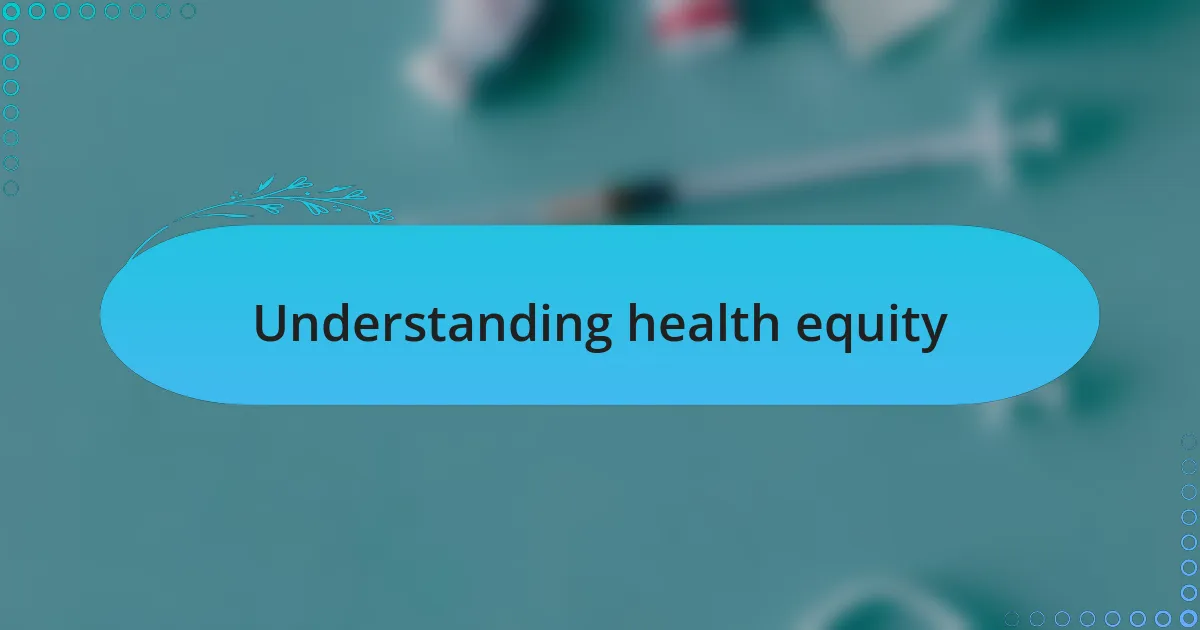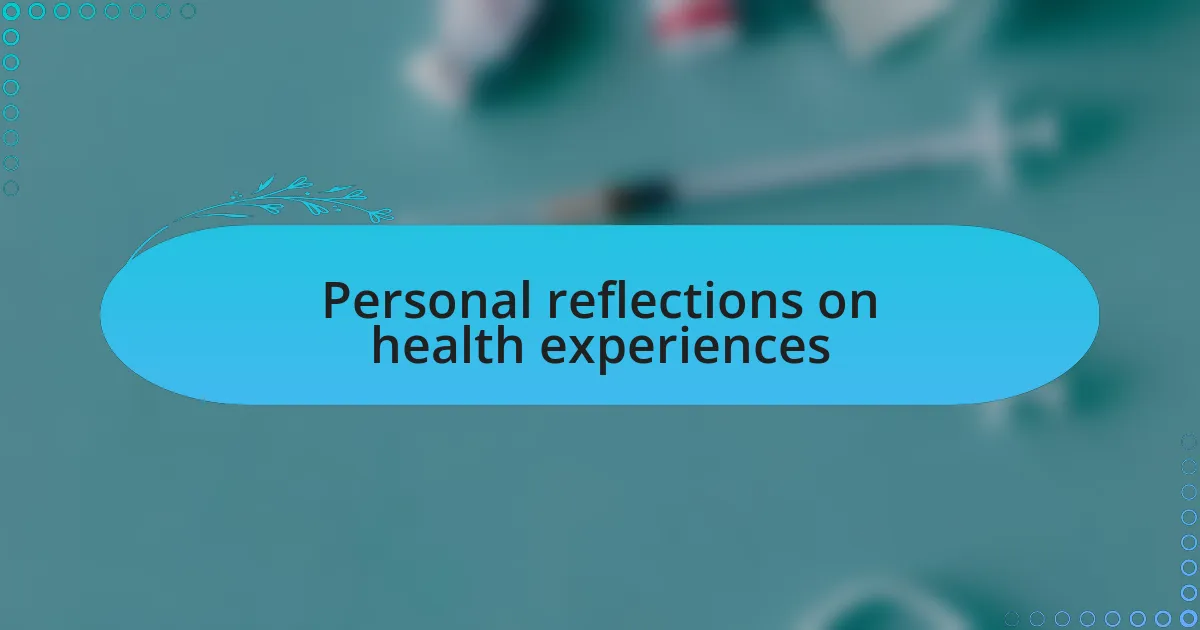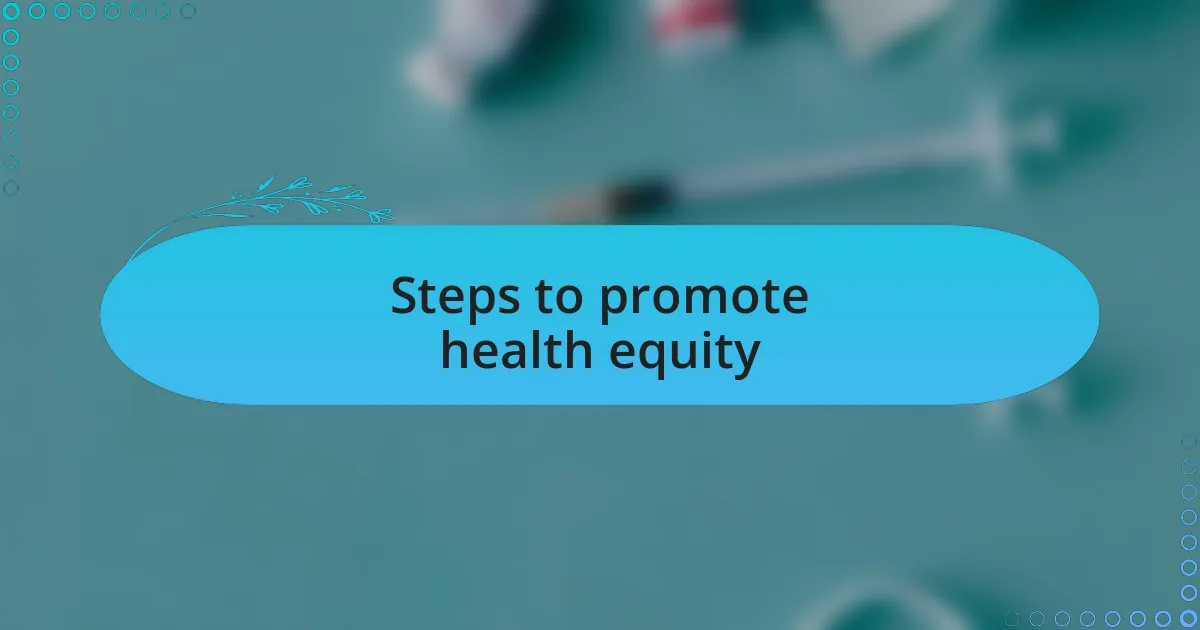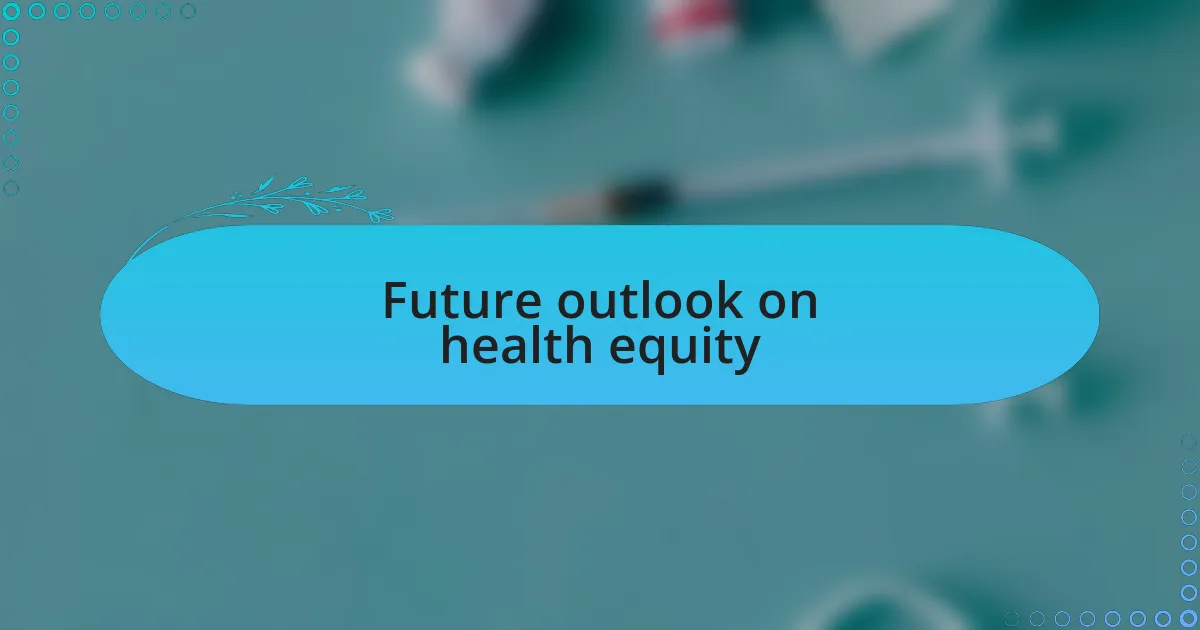Key takeaways:
- Health equity involves understanding and addressing barriers that prevent marginalized communities from accessing necessary health resources.
- Personal experiences highlight the impact of privilege and systemic issues that lead to significant disparities in health outcomes.
- Promoting health equity requires community-level interventions, cultural competency training for healthcare professionals, and systemic policy advocacy.
- The future of health equity may be advanced through technology and collaborative efforts to address social determinants of health.

Understanding health equity
Health equity means ensuring that everyone has a fair and just opportunity to be as healthy as possible. I’ve seen this play out in real-life situations where certain communities are underserved. It stirs emotions within me, wondering how different our experiences would be if health resources were distributed more equitably.
When I volunteered at a local health clinic, the stark differences in access to care struck me. Many people from marginalized communities faced barriers like transportation issues or lack of health insurance. It made me question: how can we claim to value human life when basic health needs are not met for everyone?
Understanding health equity is about recognizing that two people may have the same health issue, yet one has barriers that the other does not. I often reflect on how societal factors shape health outcomes and feel compelled to advocate for change. It’s imperative to foster discussions around these disparities, as they directly impact who receives care and who doesn’t.

Personal reflections on health experiences
Navigating my own health journey has made me acutely aware of how privilege plays a role in access to necessary services. I remember a family member who struggled with a chronic condition but avoided seeking help due to the high cost of treatment. What does that say about our healthcare system when people must choose between livelihood and health?
In another instance, I accompanied a friend to a clinic that was overwhelmed with patients who had limited access to technology. Watching them fill out forms by hand, while others could send messages from their phones for appointments, made me realize how these small differences can lead to significant disparities. Is it fair that your ability to stay healthy hinges on your zip code or access to the internet?
Reflecting on these experiences, I often feel a mix of frustration and motivation. I can’t help but think about the countless individuals who are living in the shadows, silently battling illnesses without the support they deserve. Are we truly doing enough to ensure that everyone gets a fair chance at health? It reinforces my commitment to push for change and engage in conversations about health equity.

Steps to promote health equity
To promote health equity, I believe it’s crucial to focus on community-level interventions. I once volunteered at a local health fair where free screenings were provided to underserved populations. Witnessing the relief on people’s faces as they learned about their health was a powerful reminder of how accessible services can truly make a difference. How many lives could be improved if we brought healthcare directly to the communities that need it most?
Another important step is ensuring that healthcare professionals receive training in cultural competency. I recall a conversation with a nurse who expressed concern about her ability to connect with patients from different backgrounds. This lack of understanding can lead to miscommunication and distrust. Are we doing enough to prepare our healthcare providers to effectively serve diverse populations?
Lastly, advocating for policy changes at the systemic level is vital. I keep reflecting on the conversations I’ve had with local leaders about funding for mental health resources in our area. These discussions made me realize how important it is for everyone to have a voice in shaping policies that directly impact their health. Do we really understand the power of advocacy to bring about lasting change?

Future outlook on health equity
As I look to the future of health equity, I can’t help but think about the promise of technology. For instance, during a recent seminar, I learned about telehealth’s potential to bridge gaps in access for rural communities. How many barriers could we dismantle if everyone had a smartphone and an internet connection?
I also believe that collaboration is key in advancing health equity. I was inspired by a recent partnership between local schools and health organizations that aimed to provide mental health resources to students. Reflecting on that project, it made me realize that when diverse stakeholders come together, innovative solutions emerge. Are we truly harnessing the power of collaboration to ensure nobody is left behind?
Finally, I see a growing awareness of social determinants of health in ongoing conversations. My discussions with friends have shifted from merely sharing personal health stories to addressing the broader factors that shape our experiences. As we continue to uncover the complexities of health equity, are we ready to collectively challenge and change the structures that perpetuate inequality?